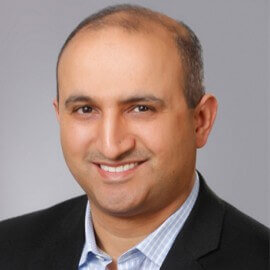
Chicago State University, USA
Prof. Moussa Ayyash
Moussa Ayyash received his B.S., M.S. and Ph.D. degrees in Electrical and Computer Engineering. He is currently a Professor at the Department of Information Studies, Chicago State University, Chicago. He is also the Director of the Center of Information and National Security Education and Research (CINSER). His current research interests span digital and data communication areas, wireless networking, visible light communications, network security, Internet of Things, and interference mitigation. His research and educational activities are funded by the National Science Foundation, National Security Agency, and Department of Defense. In 2018, Dr. Ayyash received a Fulbright Specialist Award to collaborate with Reykjavik University in Iceland. Dr. Ayyash is a Senior IEEE, a member of the IEEE Computer and Communications Societies and a member of the Association for Computing Machinery (ACM). He is a recipient of the 2018 Best Survey Paper Award from IEEE Communications Society.
Title: Coexistence Strategies in the Era of Artificial Intelligence and Heterogeneous Technologies: Opportunities and Challenges
Abstract:
Heterogeneous integration of networking and communication technologies has gotten the attention of the business and research community in recent years. While this integration is logical and brings its own opportunities when it comes to integrating vast and diverse resources, there are many technical and administrative challenges which need to be dealt with in order to harvest the real benefits of such integration. These challenges present themselves at different layers and levels (organization, management, maintenance, optimization, security, energy utilization, etc.)
This talk highlights the need for a strategic framework for coexisting heterogenous wired and wireless deployments and computing infrastructures. The talk provides examples of recent promising solutions that promote coexistence strategies (e.g. coexisting radio and optical wireless deployments (CROWD)). The speaker will also focus on the fact that large-scale heterogenous integration requires artificial intelligence (AI) techniques that can naturally deal with coexisting heterogenous environments.
The speaker will briefly shed light on the need for a different future workforce which is ready to deal with the heterogeneity of computing sciences and the “future-of-work” trends.
